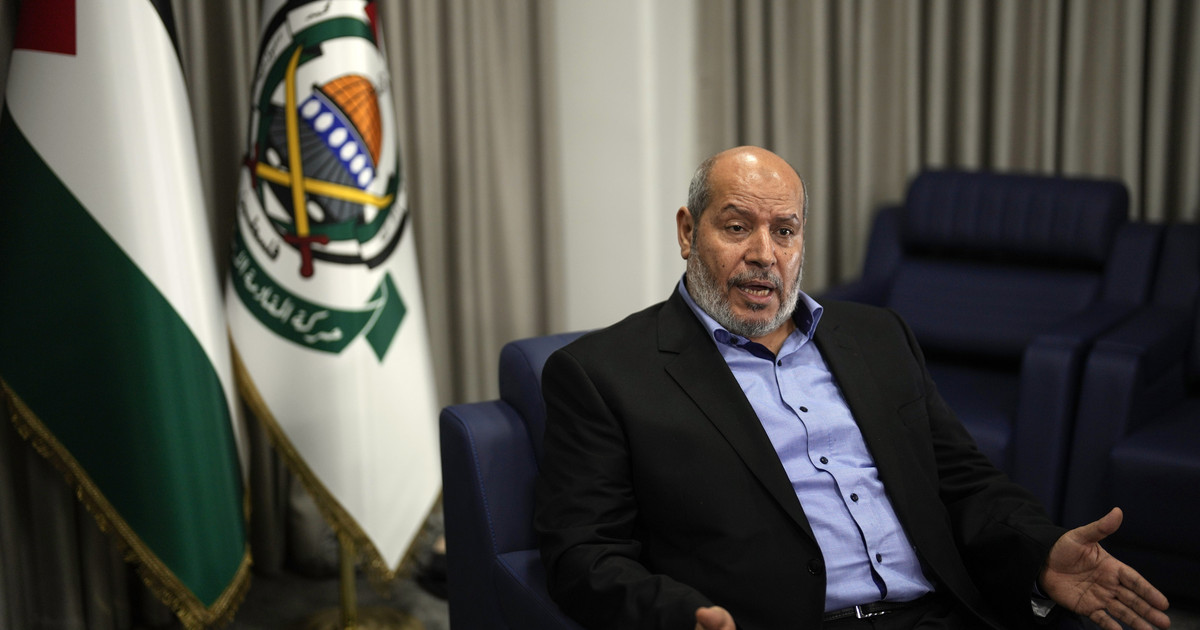Two months after the start of Russian war in Ukraine the government Biden has increased the amount of intelligence it shares with Kiev, contributing to successful attacks against high-ranking Russian leaders and the Russian Navy warship Moskva, they told CNN sources familiar with this sharing.
But the effort raises questions about the extent to which the White House willing to go to help Ukraine fighting the Russians, while trying to avoid provoking Moscow and being drawn into the conflict.
Administration officials insist there are clear limits to the information it shares with Ukraine, including a ban on providing precision intelligence on top Russian leaders by name, part of a White House effort to avoid crossing a line that Moscow can see how much climbing.
However, some former and current officials have suggested that the limits the Biden administration has set are arbitrary, in part because the end result is the same — Ukrainian attacks that kill Russian leaders.
Furthermore, any assessment of U.S on what actions can provoke Moscow depends on the thinking of just one man, the Russian president Vladimir Putin .
“Are you trying to put yourself in Vladimir Putin’s shoes and try to see what he sees as crossing a red line?” said retired Lieutenant General Robert Ashley, former head of the Defense Intelligence Agency. “That red line probably exists only in Putin’s head – and it may not be something he thought about or conveyed.”
Sources familiar with the administration’s approach say decisions to gradually expand the intelligence it is willing to share have been based primarily on judgments by Biden administration officials, not assessments of how the Russia can see a certain action.
They also reflect the evolution of reality in Ukraine. The US intelligence-sharing guidelines have been updated in recent weeks, for example, to help Ukraine carry out offensive operations in the region of Donbass where Russia refocused its military efforts after failing to capture Kiev .
“I wouldn’t describe any lines as thin or imaginary,” Pentagon Press Secretary John Kirby told the newscaster. CNN Brianna Keilar, on the American program “New Day”, on Friday (6).
“The intelligence we provide to Ukraine is legal, it is legal. It is legitimate and limited. And we are very careful about what we share and when we share it.”
The Biden administration also provided billions of dollars in arms and has publicly acknowledged that it is providing tactical intelligence to the Ukrainians. But as the war continued and Ukraine eliminated several key targets, the White House sought to carefully calibrate how it describes the impacts that intelligence has on the battlefield.
For some former employees, this is a distinction that hasn’t changed at all.
“Everyone knows that we are providing this intelligence sharing. We are providing intelligence on artillery targets, to other systems that the Ukrainians are using, so I don’t see this in any way as some kind of escalation in the relationship,” said the former Secretary of Defense and former director of the CIA Leon Panetta, to Victor Blackwell of CNN , on Friday (6). “I see it, basically, as maintaining the relationship that we established at the beginning of this war.”
Panetta added: “Obviously we are providing the missile systems, the artillery, the Stingers [míssil terra-ar guiado por infravermelho produzido nos EUA] and other weapons being supplied, but it is the Ukrainians who decide how to use them and which targets to fire. And that, quite frankly, is what war is.”
So far, Russia has not taken any known direct action against the United States or the nato in response to ongoing military and intelligence support.
For US officials, it was left to speculate why Moscow held back, particularly when it comes to cyberattacks, which the US warned before the war that Russia could use as retribution for its assistance.
Russia also did not move to attack Kiev during visits by a number of senior American leaders, including Speaker of the House Nancy Pelosi and Secretary of State, Antony Blinken .
And it certainly didn’t try to attack weapons shipments flowing through the Poland , a Nato nation. Only recently has Russia started attacking railways within Ukraine that are believed to be carrying Western weapons for the fight.
Some former and current Western officials suggest the Kremlin may be as wary of escalation as the White House — and keenly aware that, at least when it comes to conventional military power, the United States has a clear advantage over Moscow.
Russia may be holding back cyber attacks for various reasons, sources say. You may be worried that the United States will retaliate with a cyberattack of its own, introducing yet another element of chaos into an already disorganized and messy military operation. Russia may also be preparing in case it comes into direct conflict with the US or NATO.
Some officials believe that sheer incompetence on Russia’s part may also be to blame.
“You don’t know if it’s Russian inefficiency or hesitation about NATO,” said retired General Wesley Clark, a military analyst at the CNN and former NATO Supreme Allied Commander. “They know that if NATO really gets involved, this thing will be over in no time, except for the recourse to nuclear weapons.”
Russian government cyber teams had no advance warning of the war, according to a source familiar with Western intelligence. And with Western cybersecurity defenses high in anticipation of a possible attack, it is also possible that Russian cyberattacks are failing.
Despite extensive intelligence the Biden administration shared with Ukraine, including intercepted communications and information about Russian troop movements, some Republican lawmakers accused the White House of not doing enough.
“A couple of weeks ago, the criticism we were getting was, ‘Well, you’re not giving them enough intelligence, it’s too slow, it’s not relevant enough,'” Kirby told CNN . “So we continue to provide them with intelligence and information and we will continue to do that going forward.”
With information from CNN’s Natasha Bertrand
Source: CNN Brasil
I’m James Harper, a highly experienced and accomplished news writer for World Stock Market. I have been writing in the Politics section of the website for over five years, providing readers with up-to-date and insightful information about current events in politics. My work is widely read and respected by many industry professionals as well as laymen.





